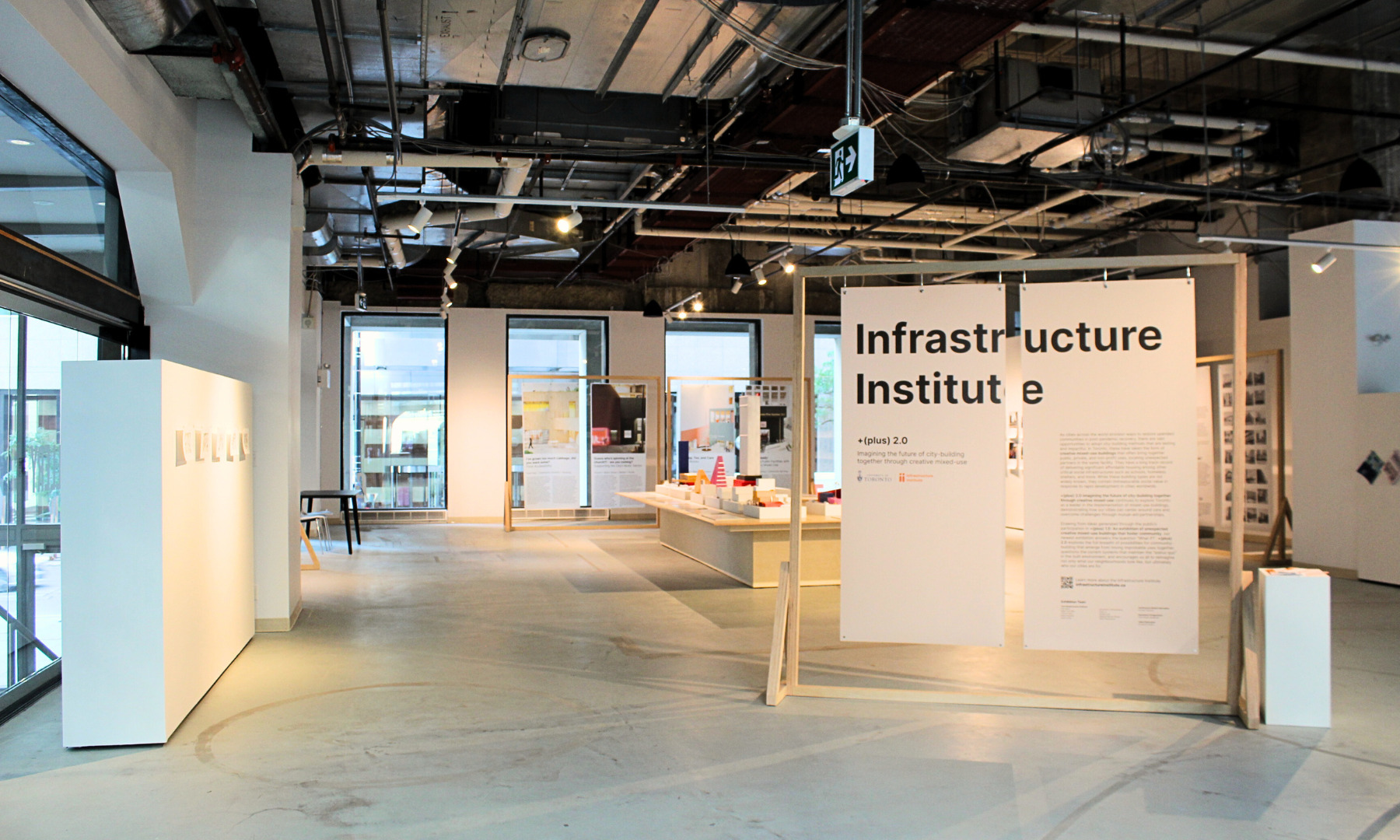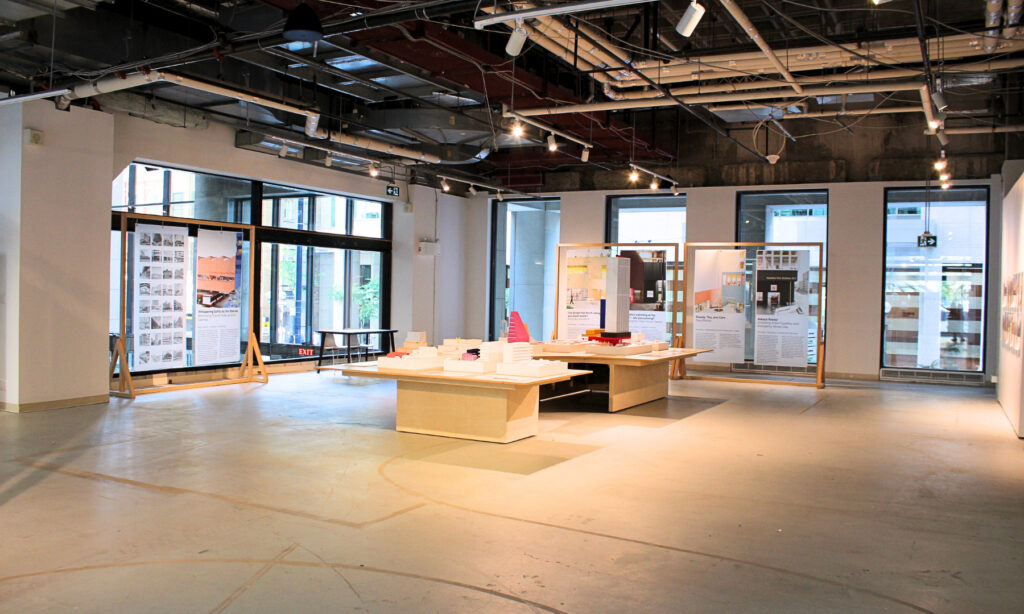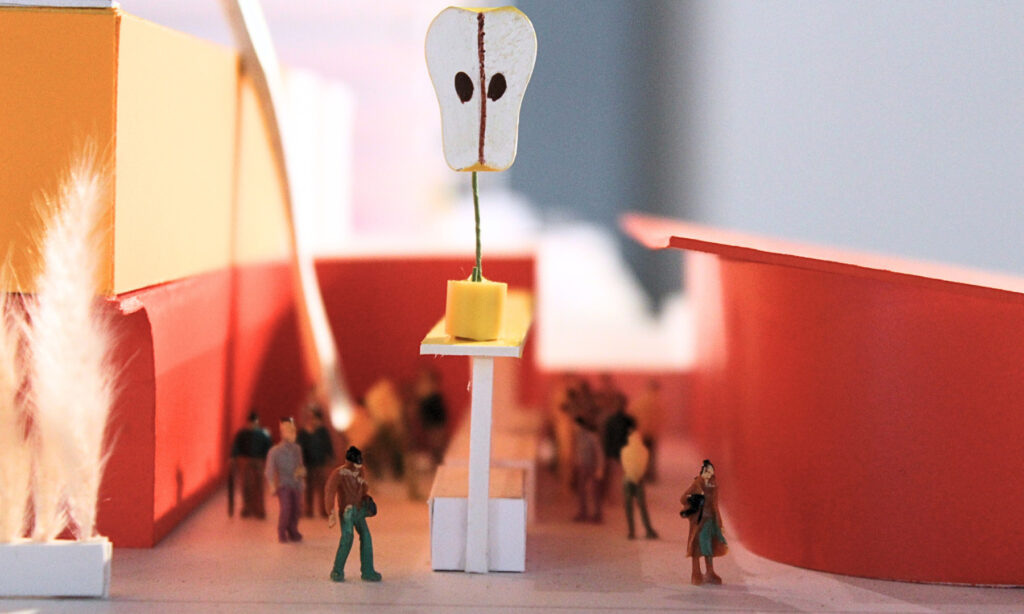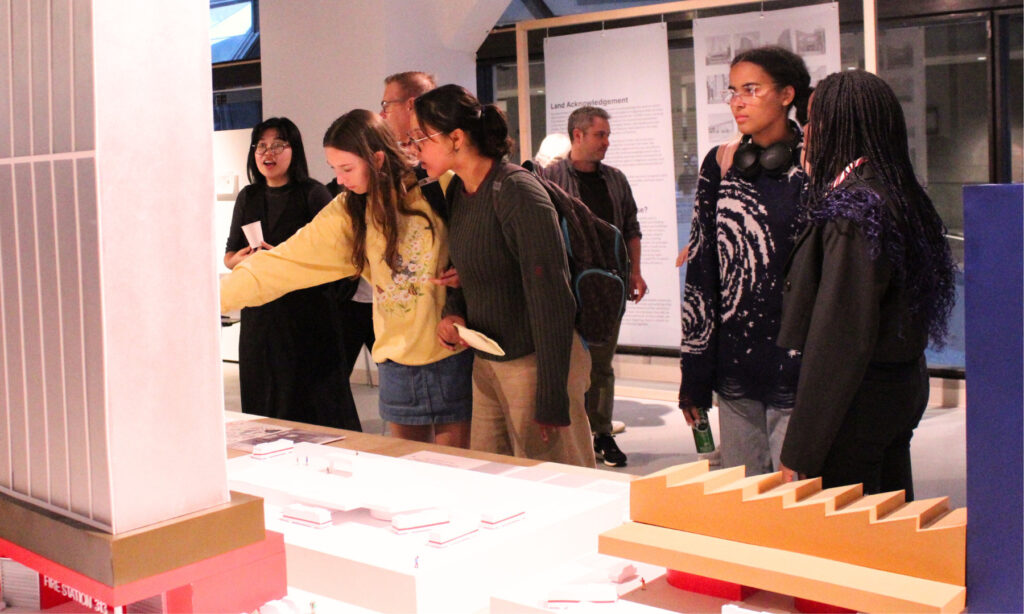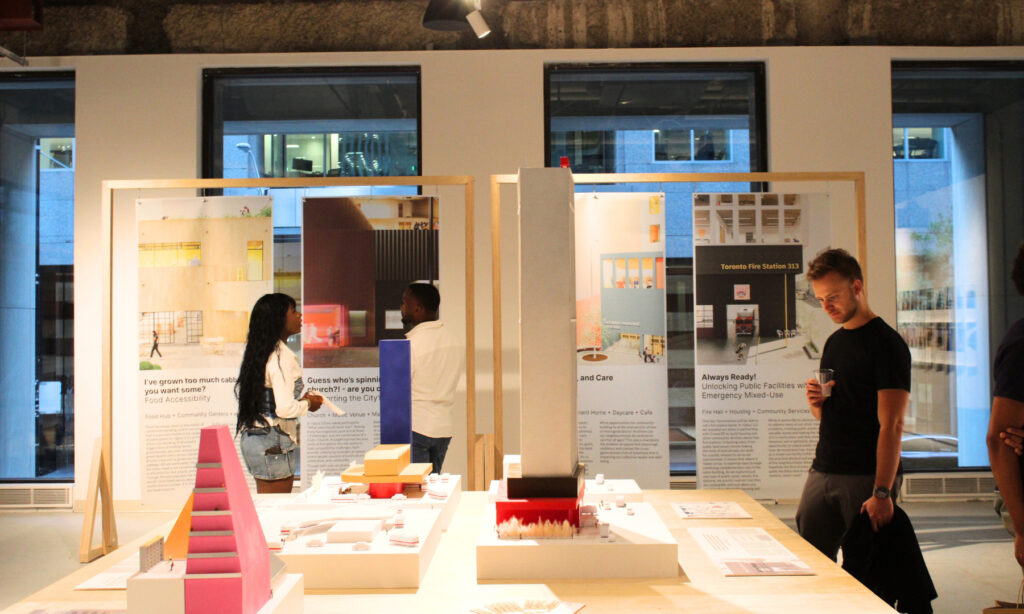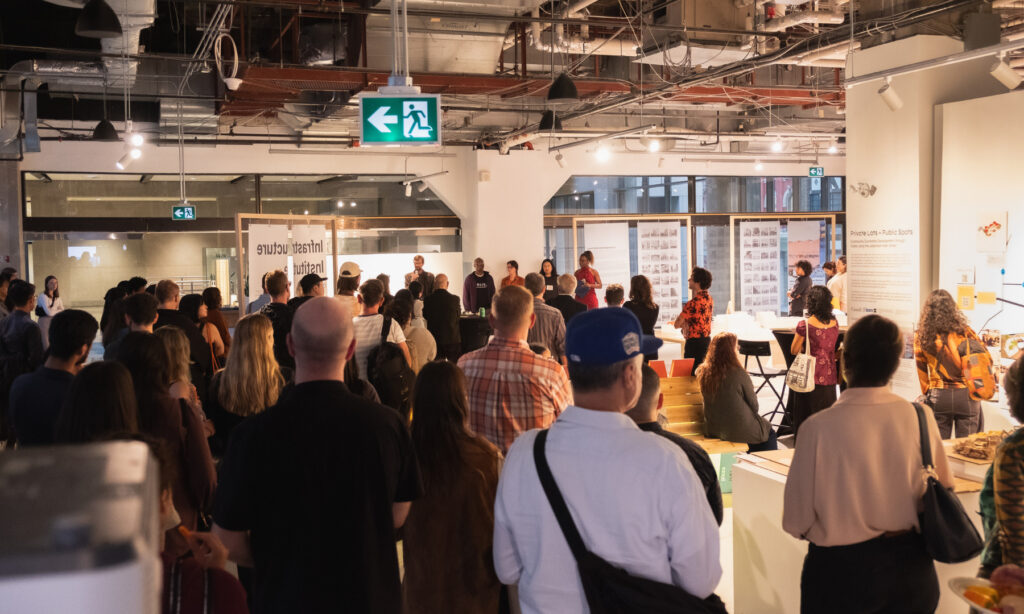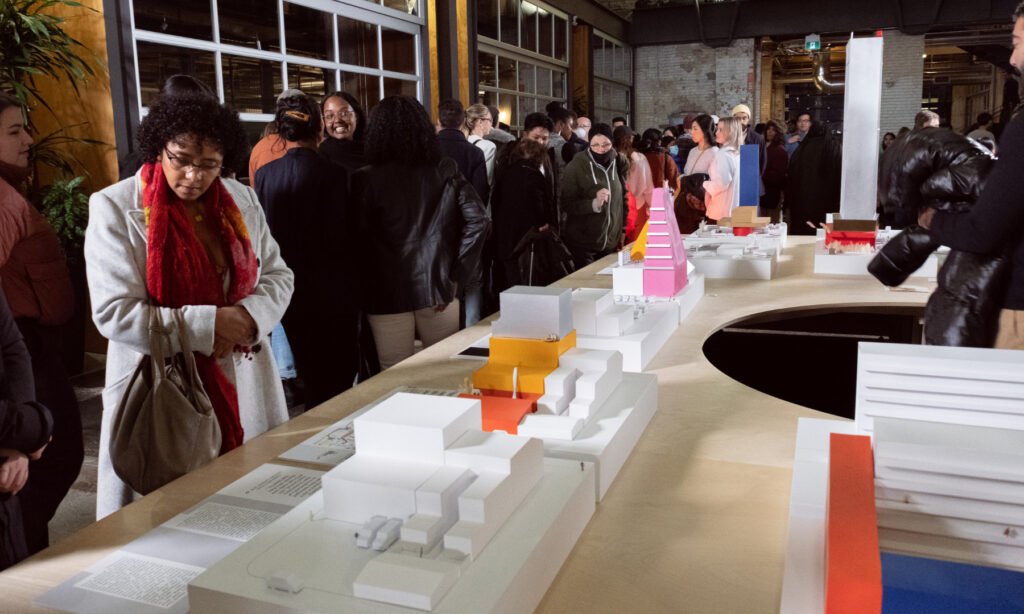Since 2022, the School of Cities has worked to create high-quality, public-facing exhibitions on pressing urban issues.
Showcasing the work of academics, students, and practitioners, the School of Cities will continue to put out exhibitions as a powerful tool of knowledge mobilization.
Interested in working with the School of Cities on an exhibition? Let us know at outreach.sofc@utoronto.ca
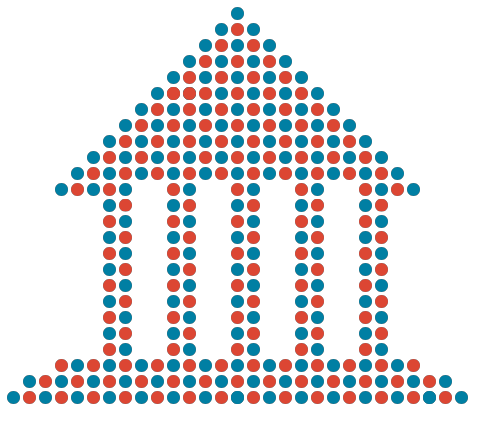
Parks in Action: Co-designing inclusive open spaces
June – August 2023
Parks in Action: Co-designing inclusive open spaces highlights the role of parks and open spaces in fostering climate action in Toronto’s inner suburbs. Urban green spaces range from expansive ravine networks to pocket gardens, and from street right-of-ways to school yards and green roofs. Regardless of their scale, they are valuable tools for urban climate change mitigation and adaptation, and are gathering places that promote social interaction, health, and well-being. This exhibition aims to demonstrate how climate action in the public realm is generative of participatory design and social engagement — from the scale of small local installations “hubs” to “tower communities” along urban watersheds – ensuring that all communities, regardless of their socio-economic backgrounds, have equal access to green spaces and their benefits. The Parks in Action exhibition was accompanied by four participatory workshops on maximizing the communal and ecological potential of parks in urban environments.
Parks in Action showcases the collaborative efforts of community members and researchers from across U of T and TMU. The work was guided by interdisciplinary research initiated by a 2020-21 School of Cities Urban Challenge Grant titled “Towers in the Park: A Prospective for Equitable Resilience,” and housed at the John H. Daniels Faculty of Architecture, Landscape, and Design’s Centre for Landscape Research led by Assistant Professor Fadi Masoud. The Climate Action Hubs were a collaboration with the City of Toronto’s TransformTO climate action and TMU’s School of Urban and Regional Planning led by Assistant Professor Victor Perez-Amado. Parks in Action: Co-Designing Inclusive Open spaces was conceived and curated by Fadi Masoud and Victor Perez-Amado, along with Rashmi Sirkar and Alex Sheinbaum in collaboration with faculty colleagues, students and staff and exhibited in partnership with the University of Toronto’s School of Cities.
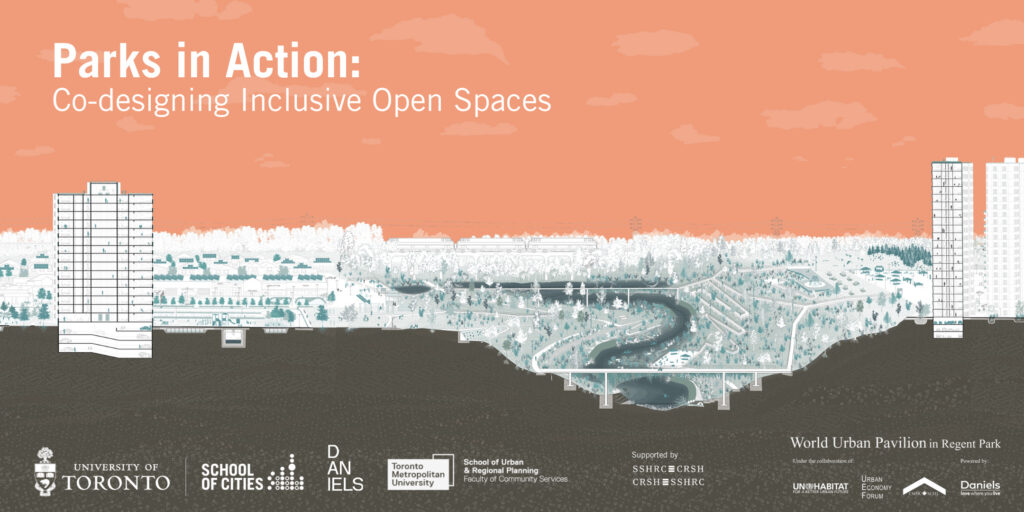
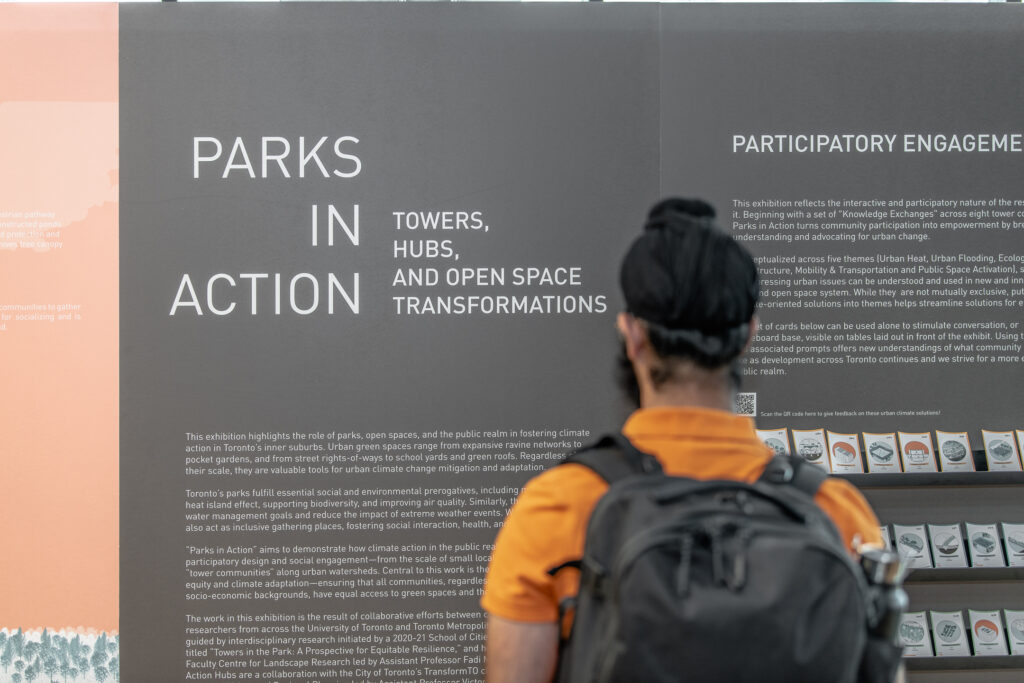
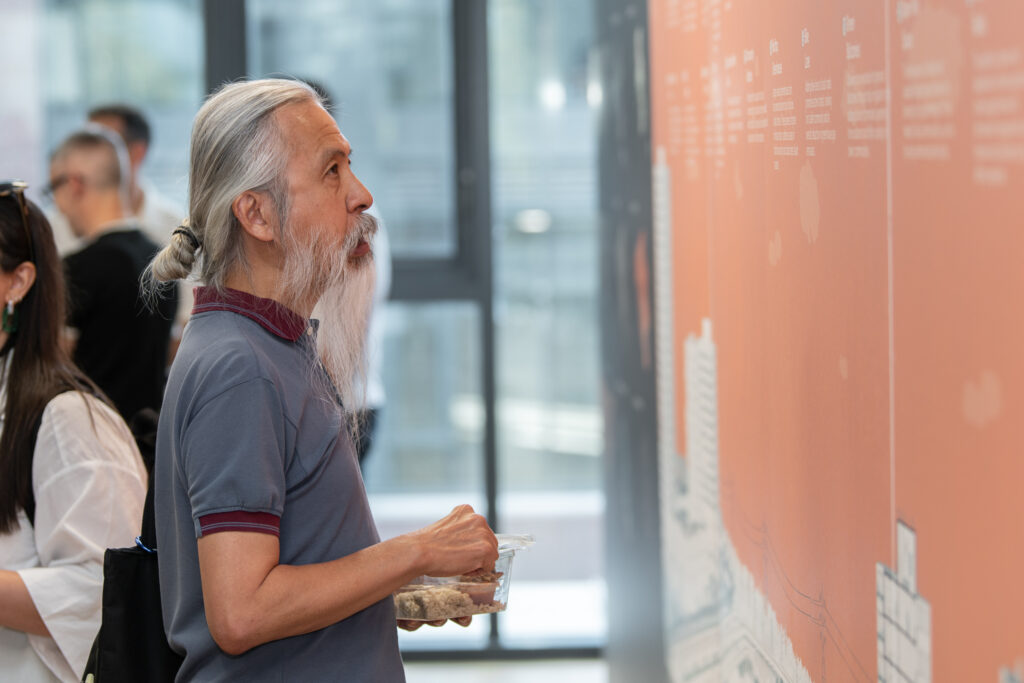
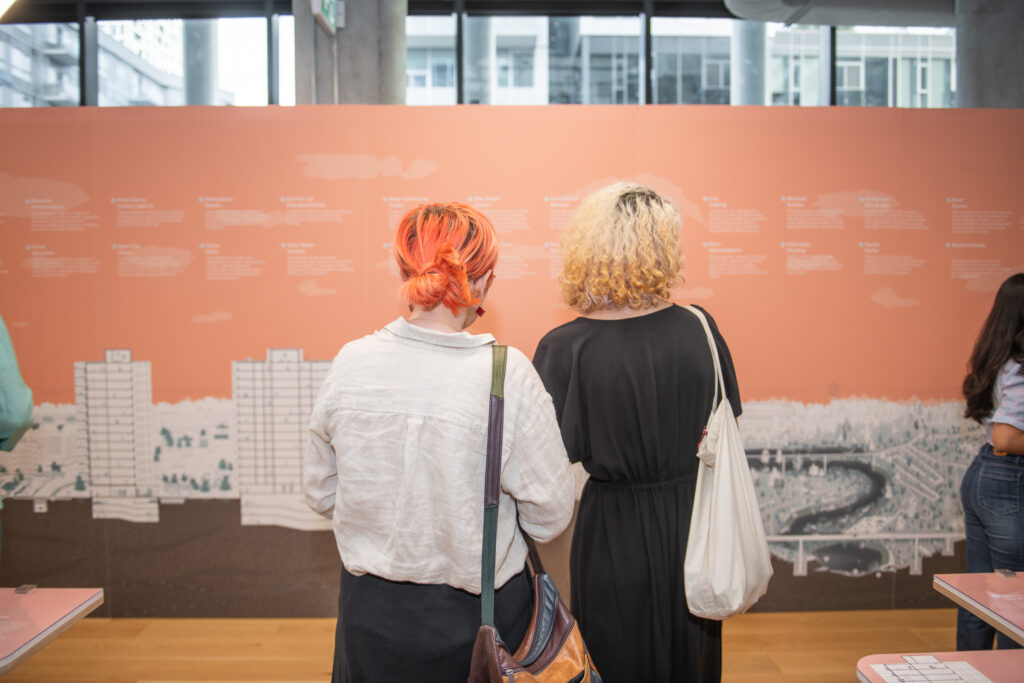
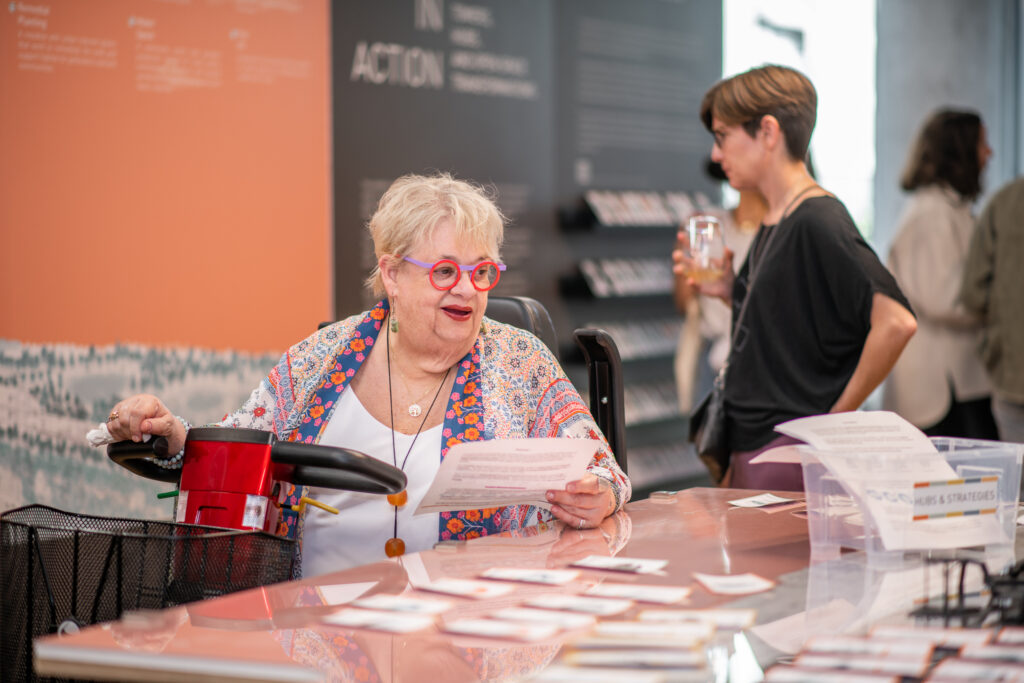
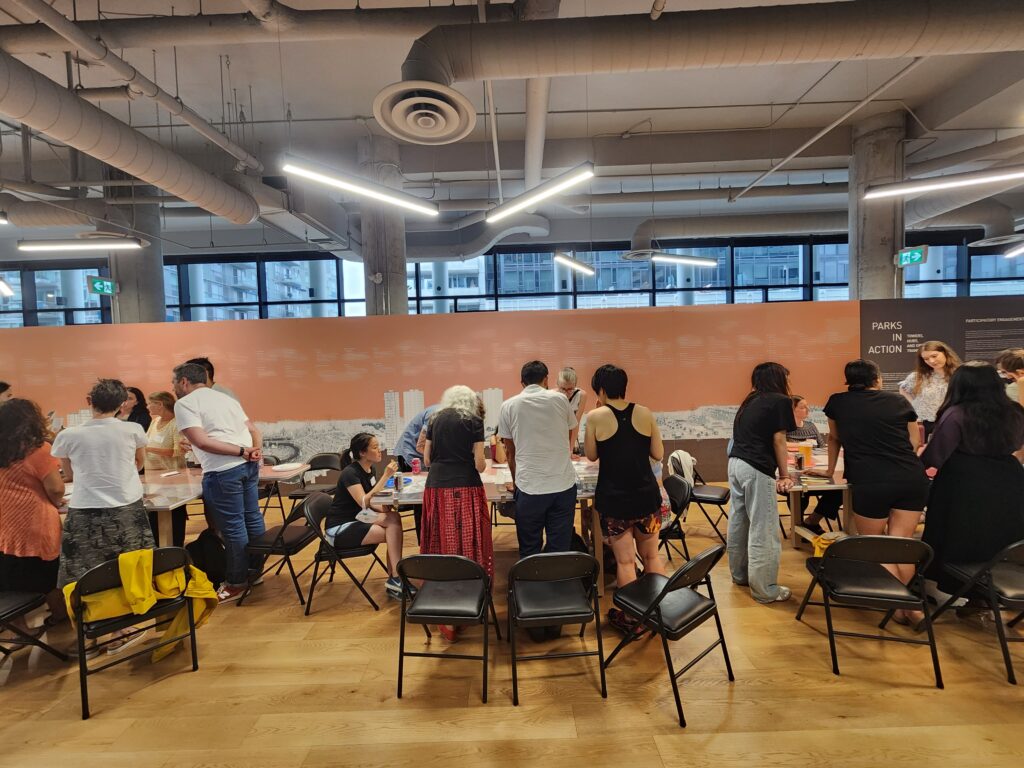
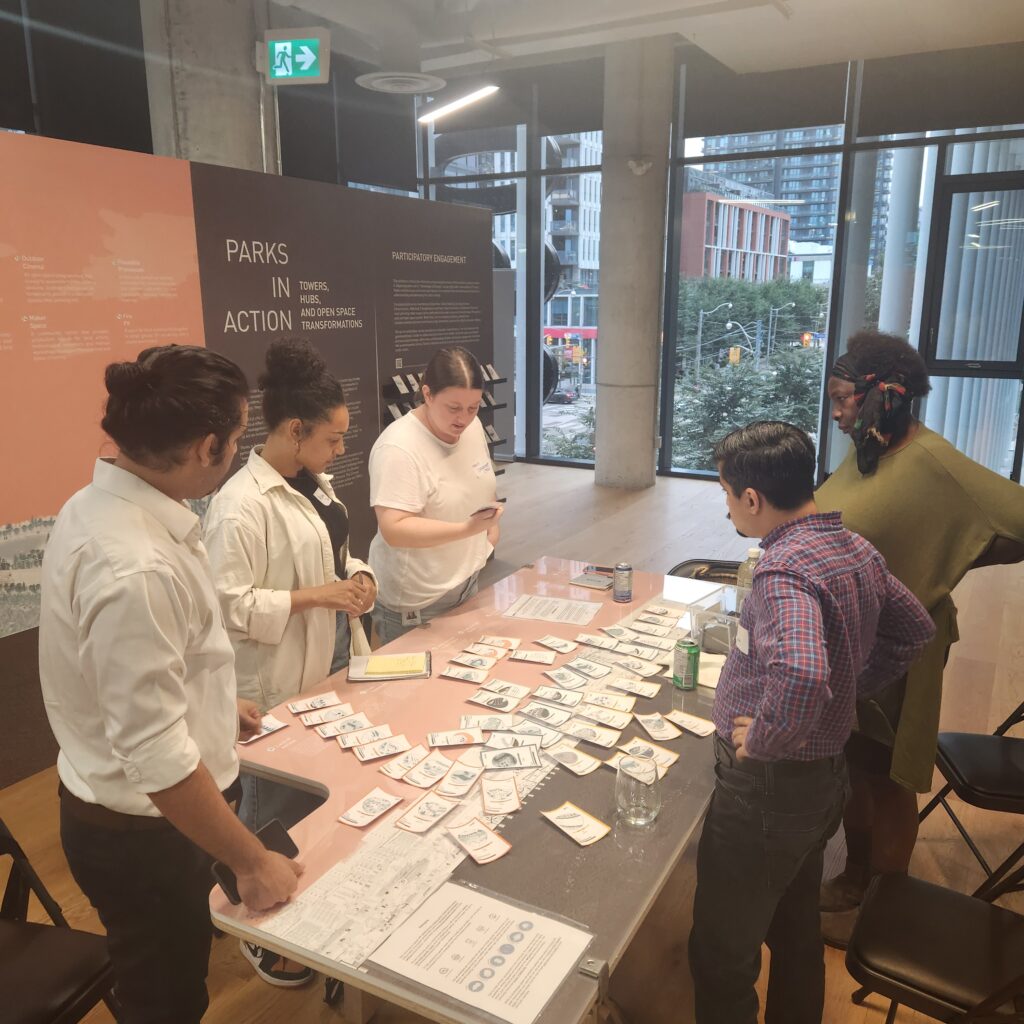
Housing Multitudes 2.0: A bigger picture for Toronto
January – May 2023
Using Toronto as a laboratory, the study and exhibition Housing Multitudes 2.0: A bigger picture for Toronto unlocks the DNA of the suburb to create a “big picture” of how the urbanism that characterizes many North American cities can be transformed for the greater benefit of all.
Simultaneously lyrical and policy-conscious, the exhibition’s experimental format includes films/animations, vast panoramas and maps, graphic novel-like stories, and models that have all been conceived to challenge received thinking about the suburbs. The curators have purposely brought a degree of fiction to studies that have, in fact, been drawn from real sites and places as well as their histories, in order to engage new audiences and open questions about what the suburbs are and can become.
Housing Multitudes 2.0 was conceived and curated by Michael Piper and Richard Sommer of the University of Toronto’s Daniels Faculty in collaboration with Faculty colleagues, students and staff and exhibited in partnership with the School of Cities.
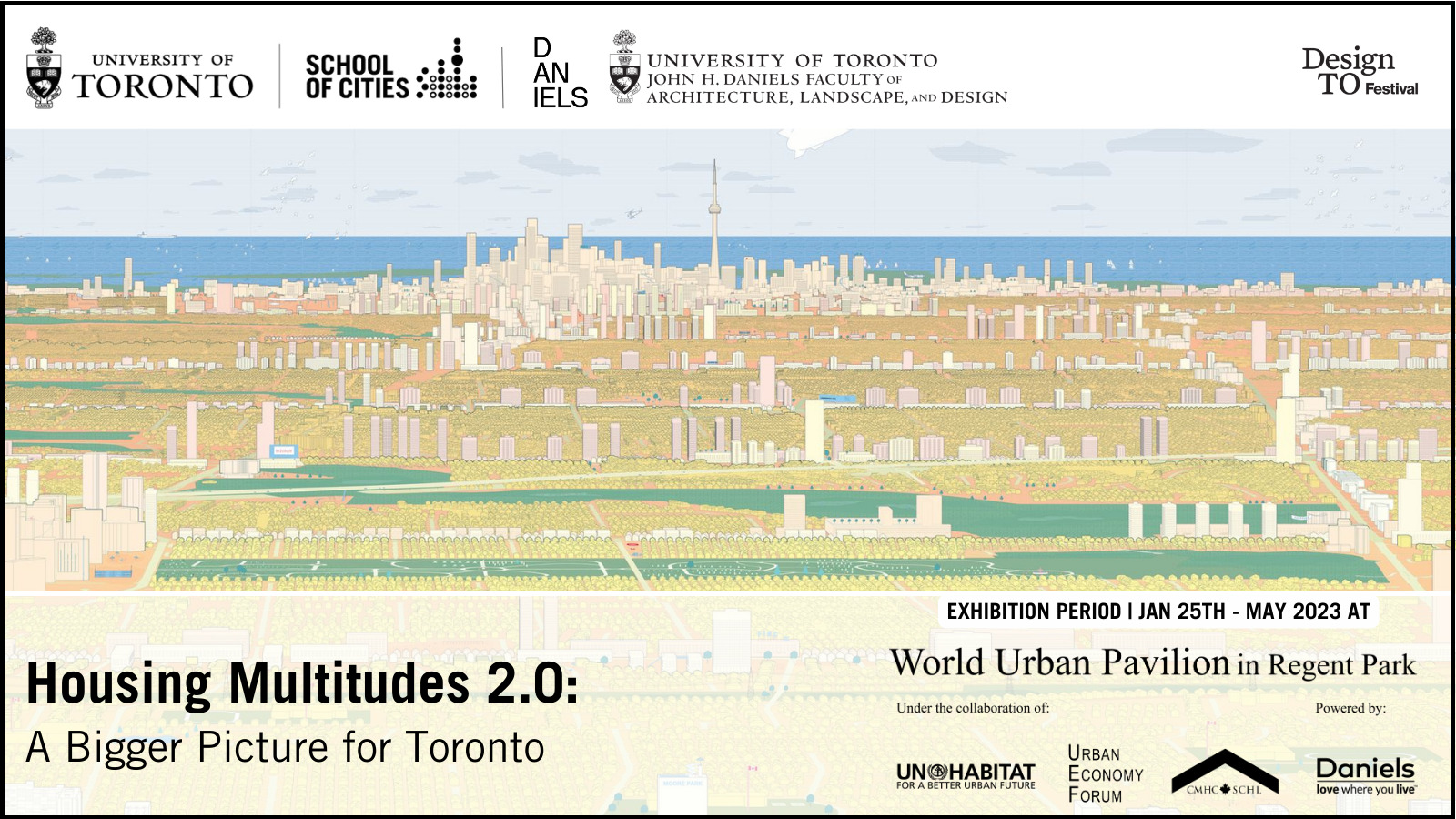
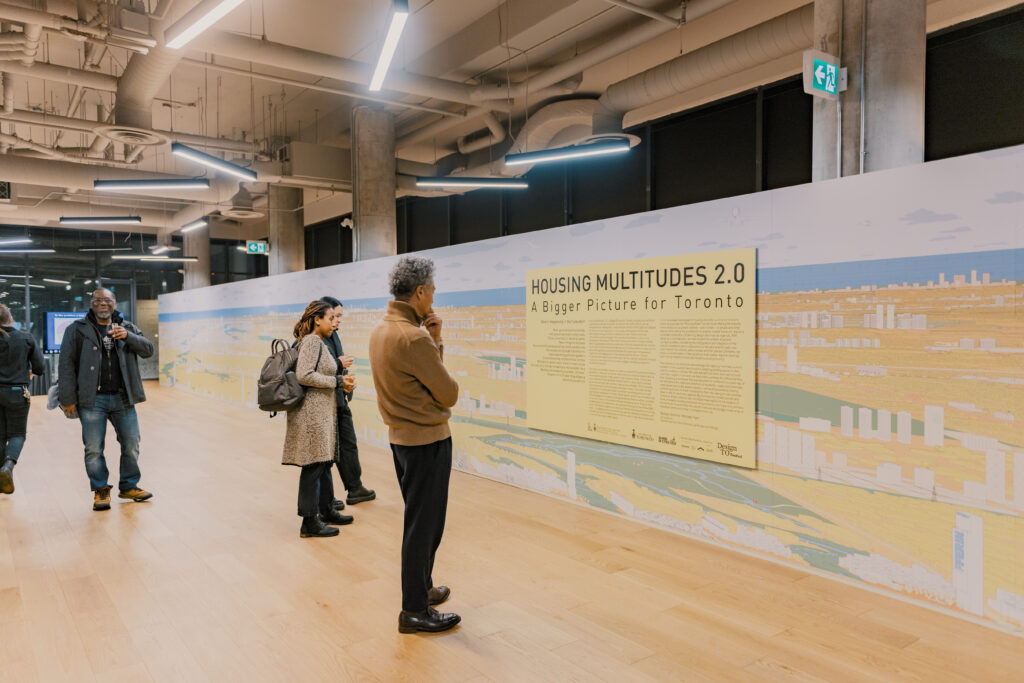
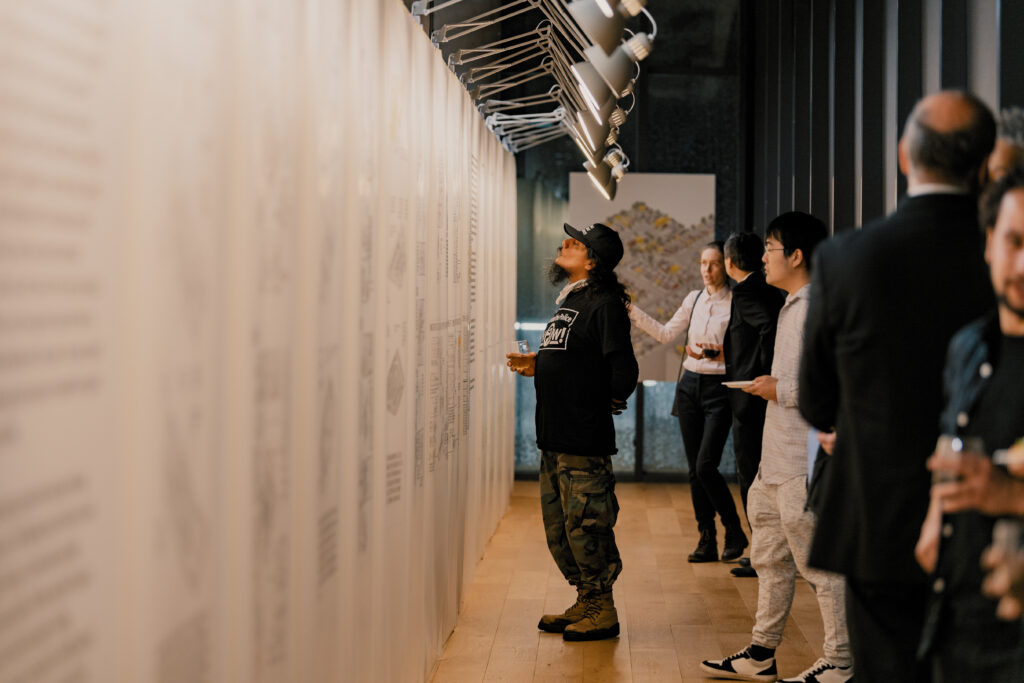
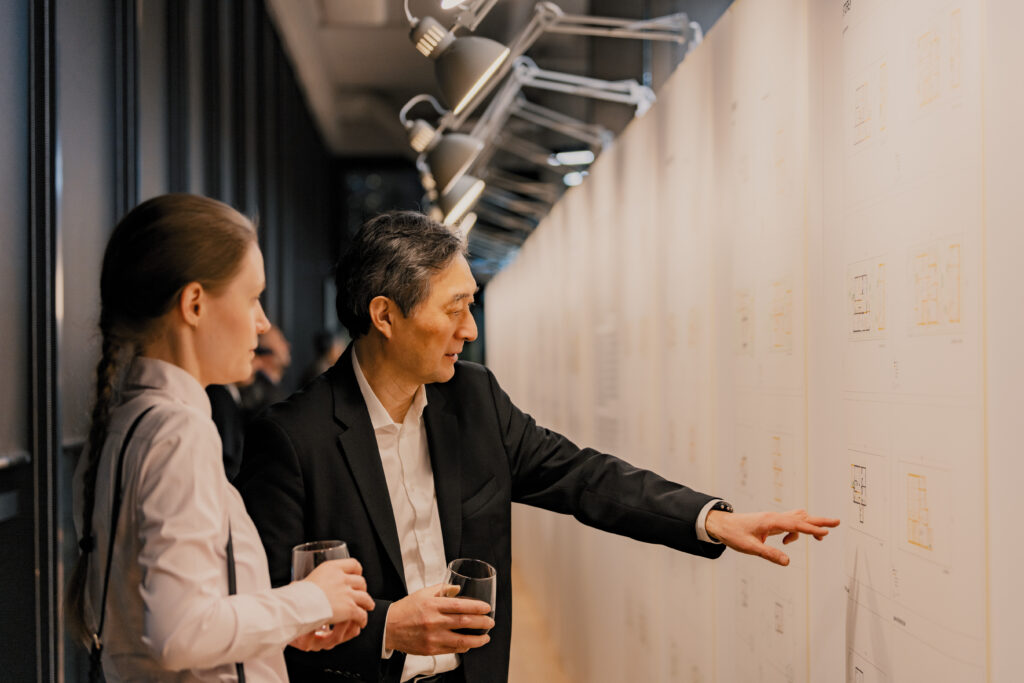
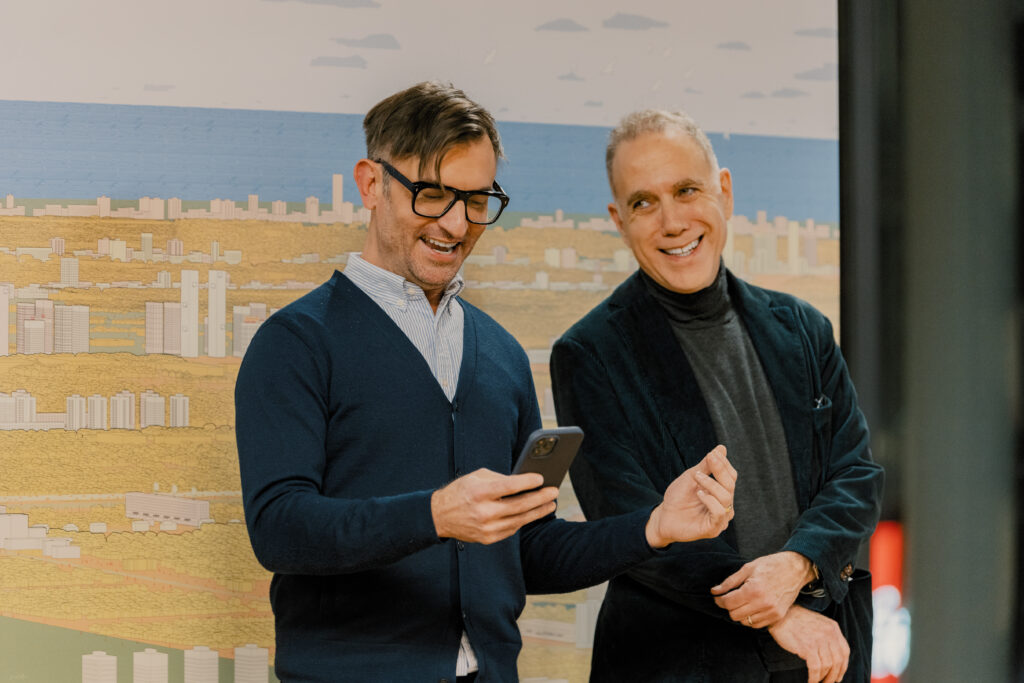
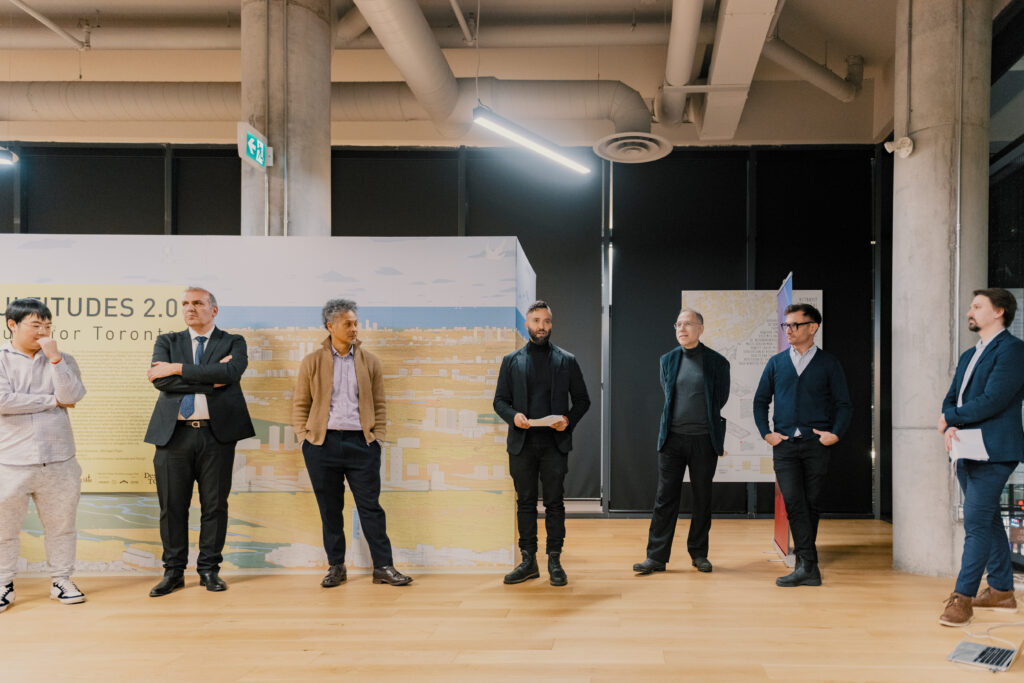
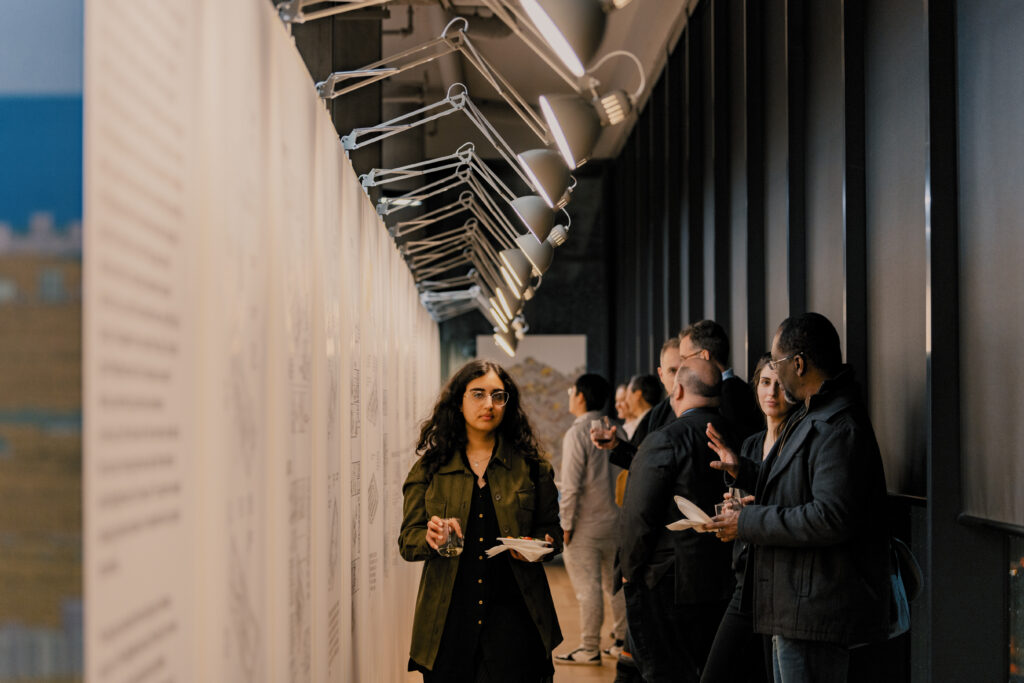
+(plus 2.0): Imagining the future of city-building together through creative mixed-use
January – September 2023
+(plus 2.0): Imagining the future of city-building together through creative mixed-use showcases the work of School of Cities affiliated initiative Infrastructure Institute
+(plus) 2.0 continues to explore Toronto as a leader in the design and implementation of mixed-use buildings, demonstrating how our cities overall can centre around care and mutual aid in partnerships. +(plus) 2.0 explores the full breadth of possibilities for community-building that emerge from mixing improbable uses together; questions the current systems that maintain the ‘status quo’ in architecture/urban planning; and encourages us all to reimagine not only what our neighbourhoods look like, but ultimately who our cities are for.
